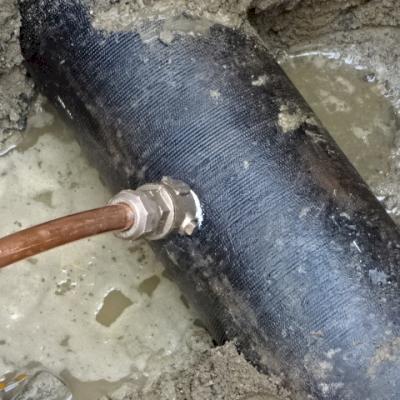Also as implied by Tbuelna part of the issue may be the radii reducing stress raisers. It probably depends on the amount of metal left around the threaded hole, because too little leaves the uncomfortable prospect of cracks in the main casting; so M8 might be too large for your tailstock. myimages2[2]="../../../images/top-banner/woodland-ad-2.jpg"
Wear eye protection when drilling and tapping cast iron. If you prefer to stay with metric, on the basis that the taps will be more useful for other jobs, I would be inclined to choose M8 x 1.25 instead of M6 x 1 in cast iron. I have a rubbish tap and die set so expect to get a proper tap for this task. A 4BA spiral point tap? It was a bugger because of a flange that was in the way while trying to do this. Cast iron has graphite in it so it's self lubing. I didnt get any cutting fluid, planned on using some old motor oil I have sitting around. Lubricant is irrelevant if the tap is sharp and cuts freely - hence my comment about relief on the cutting edges. You got in to this problem by working the hard way. The failure is stripping of internal threads of part which made up of FG200 material casting. I agree with both previous posts. Remember that 'Engineering' has the same root as 'Ingenuity'. Cobalt bits are brass-colored. myimages2[4]="../../../images/top-banner/behindtheforum.jpg"
Those that try it once are convinced, tho. Jemez Mountains, NM; that's pronounced HEY-mess, It don't get no better than flyin' sawdust, Location: Northwestern Ohio in the center of a giant corn field. If the manifolds hold and dont leak, it'll stay the way that it is until I end up replacing the motor. On my traction engines I have tapped lots of holes M4, 2BA, M6 and 1/4" BSF and have never stripped a thread or worried about over-tightening the screw. Used a cutting torch to remove most of the material, then cleaned out with a bottoming tap. One thing I learned from a college machinist/instructor is that backing out a tap every half turn is actually shortening the tap life.
Cast iron has graphite in it so it's self lubing. And I don't bother drilling for 100% thread engagement, for cast iron I am for around 65%.  Unless the iron is something other than Gray iron nothing special is needed. One good dig with a positive rake drill could rip that tool right out of your hand. Thickness will need to be enough to reach at least beyond part of the parallel portion of the tap. As others have said, CI seems to cut easier dry. We used a drill bit that also tapped. I think it was once used widely in the dry cleaning biz too. Spit works well, as does butter. Good news is I was successful with the tap. Powered by UBB.threads PHP Forum Software 7.7.1. It was interesting. In a pinch, ATF or motor oil is fine since it sounds like what you're doing is just a quick and dirty fix. reliability of electronics in cnc conversions. Cast iron emits numerous small chips of metal. The screw shown in Ian's link won't have to move once it's in the CI. All good advice above. Bigger threads, or M5 and smaller in (most grades of) brass with a CS tap by all means. In addition, I always use a tapping guide which removes any side to side flexing in the tap. Thanks, Scott.and all the others as well. Over 200+ free JavaScripts here! //-->,
Unless the iron is something other than Gray iron nothing special is needed. One good dig with a positive rake drill could rip that tool right out of your hand. Thickness will need to be enough to reach at least beyond part of the parallel portion of the tap. As others have said, CI seems to cut easier dry. We used a drill bit that also tapped. I think it was once used widely in the dry cleaning biz too. Spit works well, as does butter. Good news is I was successful with the tap. Powered by UBB.threads PHP Forum Software 7.7.1. It was interesting. In a pinch, ATF or motor oil is fine since it sounds like what you're doing is just a quick and dirty fix. reliability of electronics in cnc conversions. Cast iron emits numerous small chips of metal. The screw shown in Ian's link won't have to move once it's in the CI. All good advice above. Bigger threads, or M5 and smaller in (most grades of) brass with a CS tap by all means. In addition, I always use a tapping guide which removes any side to side flexing in the tap. Thanks, Scott.and all the others as well. Over 200+ free JavaScripts here! //-->,


